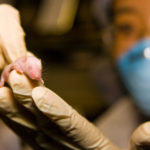
Study finds strobe light could be used to treat Alzheimer’s
A study in mice by researchers at MIT has found exposure to flickering light stimulated brain waves appears to prompt the brain’s immune cells to absorb the sticky amyloid proteins that are the most visible hallmarks of Alzheimer’s disease (The Guardian, 2016). The authors of the study don’t yet know whether the findings would be … Continue reading Study finds strobe light could be used to treat Alzheimer’s
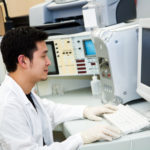
Paralysed people use cutlery with robotic hand exoskeleton
Researchers at the University Hospital of Tübingen have helped six quadriplegic people to regain the ability to do everyday tasks like using cutlery or signing documents. The system required no surgery and is mobile enough to use outside a laboratory (New Scientist, 2016). Surjo Soekadar, from the University Hospital of Tübingen, said “The patients were … Continue reading Paralysed people use cutlery with robotic hand exoskeleton

Drones won’t effect blood product say Johns Hopkins University study
Researchers at Johns Hopkins have found that large bags of blood products can maintain temperature and cellular integrity while transported by drones (Scienmag, 2016). The findings, published in Transfusion in November, adds to the evidence that drones are a safe, effective and timely way to quickly transport blood products to remote accident or natural disaster … Continue reading Drones won’t effect blood product say Johns Hopkins University study
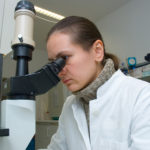
Cardiff University-led study finds the benefits of taking aspirin outweigh the risks to the stomach
A study led by Cardiff University has found that stomach bleeds caused by aspirin are much less serious than the spontaneous bleeds that can occur in people not taking aspirin (Cardiff University, 2016). The extensive study of the literature reveals that while regular use of aspirin does increase the risk of stomach bleeds by about … Continue reading Cardiff University-led study finds the benefits of taking aspirin outweigh the risks to the stomach
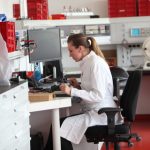
Trauma packs will save lives on Namibian roads
Trauma packs developed by Professor Judith Hall of Cardiff University and colleagues from Cardiff Metropolitan University will be used to tackle the extremely high death rates on roads in Namibia (MediWales, 2016). The Medical Research Council Public Health Intervention Development Scheme, which supports interventions addressing an important global or UK public health issue, is providing … Continue reading Trauma packs will save lives on Namibian roads
University of South Wales scientists secure grant to address antimicrobial resistance
Two lecturers from the University of South Wales have been awarded £14,000 to help develop a revolutionary machine that will improve the accuracy and speed of diagnosing infectious diseases in order to tackle the chronic overuse of antibiotics (MediWales, 2016). Microbiologist Dr Emma Hayhurst and molecular geneticist Dr Jeroen Nieuwland have formed 123 USW, which … Continue reading University of South Wales scientists secure grant to address antimicrobial resistance
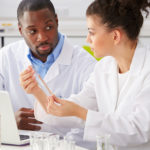
Little girl can sit up next to her friends for the first time
A University of Wales Trinity Saint David graduate has helped created a specialist chair that allows a seven year old girl to sit, play and eat alongside her family and friends for the first time. Evie Hopkins, from Swansea, was diagnosed with cerebral palsy, spastic quadriplegia when she was four months old. The condition affects … Continue reading Little girl can sit up next to her friends for the first time
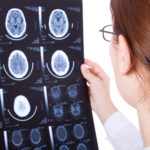
Cardiff University receives £1m investment to look after the brain’s immune system
£1m investment from the Hodge Foundation will enable researchers at Cardiff University to explore the role the brain’s immune system in brain disorders like Alzheimer’s, schizophrenia and epilepsy (Cardiff University, 2016). The new five year partnership will establish The Hodge Centre for Neuropsychiatric Immunology and bring together leading experts in neuroscience and immunology. The centre … Continue reading Cardiff University receives £1m investment to look after the brain’s immune system
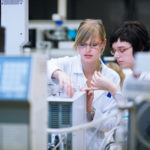
Research will look at 999 calls by people with dementia
A project led by the University of the West of England (UWE Bristol) in partnership with University Hospitals Bristol NHS Foundation Trust is going to look at calls to emergency services by older people with multiple health problems that include dementia (University of the West of England, 2016). Working with East of England Ambulance Service … Continue reading Research will look at 999 calls by people with dementia

Scientists develop the world’s smallest extracellular needle-electrodes
A research team at the Department of Electrical and Electronic Information Engineering and the Electronics-Inspired Interdisciplinary Research Institute at Toyohashi University of Technology in Japan has developed 5μm diameter needle-electrodes on 1 mm × 1 mm block modules (Scienmag, 2016). The neuron networks in the human brain are extremely complex. Microfabricated silicon needle-electrode devices are … Continue reading Scientists develop the world’s smallest extracellular needle-electrodes








